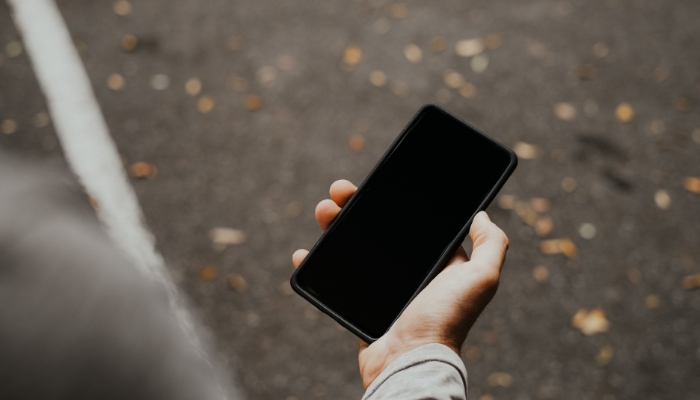
Much like a shepherd who knows every nook and cranny of his pasture, your mobile carrier could potentially know every digital footprint you leave behind. You might be wondering, ‘can your carrier track your phone?’
Mobile carriers can track your phone primarily for service-related purposes, such as call routing and billing. However, the extent of tracking and data storage is regulated, and users should be aware of their carrier’s policies and legal privacy protections.
Well, the answer isn’t as straightforward as you may think. It’s a complex blend of technology, legality, and privacy, and understanding it fully requires peeling back layers of modern communication systems. Intrigued? Stick around as we unpack the truth behind this ubiquitous question ”can your carrier track your phone”.
Understanding Mobile Carrier Tracking
Let’s dive into how your mobile carrier can track your phone, a process that might seem complex, but is actually quite straightforward. Your mobile carrier can pinpoint your current location by using cell towers, and for individual users, checking their carrier by SIM can provide essential information about the network they are connected to. Whenever you use your phone, it sends signals to the nearest cell towers. These towers then relay the information back to your carrier, giving them an idea of where you’re located.
Privacy settings on your phone can also play a part in this. If you’ve enabled location services, your mobile carrier can access this data, providing a more accurate location. This is particularly useful for services that rely on your location, such as GPS navigation or local weather updates.
However, it’s important to remember that these location services can be turned off. If you’re uncomfortable with your carrier knowing your location, you can adjust your privacy settings. But remember, this may affect the functionality of certain apps that rely on location data.
Understanding how your carrier tracks your phone gives you greater control over your privacy. It’s a simple process, but knowing how it works can help you make more informed decisions about your phone use.
Reasons Why Carriers Might Track Phones

Network Management and Optimization
Mobile devices have become an integral part of our daily lives, and phone carriers play a crucial role in ensuring smooth communication. One of the primary reasons carriers track phones is for network management and optimization.
This process involves monitoring radio signals and Wi-Fi networks to maintain a stronger signal and reliable service. For instance, when you’re using Google Maps to find the nearest gas station, your carrier needs to pinpoint your exact location to provide accurate navigation and connectivity.
Carriers track online activity to understand usage patterns, and in some cases, they might use tools similar to Bulk Phone Carrier Lookup for large-scale analyses. This data helps them manage network traffic efficiently, especially in crowded areas where many people are using public Wi-Fi or their mobile devices simultaneously. By understanding these patterns, carriers can enhance their networks, ensuring that T-Mobile customers, AT&T T-Mobile Verizon users, and others receive the best possible service.
Compliance with Legal Requests
Another critical reason for phone tracking by carriers is compliance with legal requests. Carriers are often required by law to provide certain user data to authorities. This could include background location access, internet activity, or call logs.
In cases of an actual emergency, such as when emergency services need to locate a caller, carriers can use cell site simulators and identifiers to cell towers to determine the caller’s physical location.
Moreover, in scenarios involving privacy breach investigations or privacy disaster prevention, carriers might be asked to track specific online tracking or digital activity. This is done under strict legal frameworks to ensure that the privacy rights of individuals are respected.
App permissions and application settings on Android devices or other smartphones play a significant role in what data is accessible to carriers.
Carriers track phones primarily for network management and legal compliance. They use various technologies, from cell towers to software applications, to ensure efficient network performance and adhere to legal requirements.
While this tracking is essential for operational and legal reasons, carriers also respect the privacy and security of their users, implementing adequate controls and access control measures.
How Does Phone Tracking Work?
Building on what we’ve learned about carrier tracking, it’s crucial to understand the broader mechanics behind phone tracking. Here’s how your mobile provider pinpoints your device location using cellular networks and built-in location services:
- Cellular networks: Your phone always maintains a connection with the nearest cell tower. Your mobile provider uses these towers to triangulate your approximate location.
- Built-in location services: Your smartphone has built-in GPS, Wi-Fi, and Bluetooth capabilities that can provide more precise location data. GPS uses satellites, while Wi-Fi and Bluetooth use nearby networks and devices.
- Location history: Your mobile provider keeps records of your location history. This data can be used in conjunction with real-time location data to track your movements over time.
- Device location: Your phone’s operating system also plays a role. Both Android and iOS have settings that allow for location tracking. You can often choose to share your location with specific apps or services.
Legal Aspects of Phone Tracking
Navigating the legal landscape of phone tracking can be a complex task, and it’s important to understand your rights and protections. Legal aspects of phone tracking involve several entities, including law enforcement agencies, your cell phone provider, and possibly a mobile tracking service.
Law enforcement agencies can legally track your phone, but usually, they need a warrant to do so, except in certain emergency situations. On the other hand, your cell phone provider has the capability to track your phone as well. They, however, are bound by privacy laws and their own privacy policy, which usually limits what they can do with the data they collect.
If you’ve signed up for a mobile tracking service, you’ve likely given them permission to track your phone. Make sure you read the terms and conditions carefully so you know what you’re agreeing to.
In the end, your privacy is a fundamental right. If you believe it’s been violated, don’t hesitate to seek legal advice. Understanding the legal aspects of phone tracking can help protect your rights and maintain your privacy.
Carrier Tracking vs. Third-Party Tracking

Differences in Methodologies and Purposes
Carrier tracking and third-party tracking, while similar in their use of technology to monitor mobile devices, differ significantly in their methodologies and purposes. Phone carriers, such as AT&T T-Mobile Verizon, track phones primarily for operational reasons like network management and optimization.
They use cell site simulators, radio signals, and Wi-Fi networks to ensure a stronger signal and better service quality. For example, when a user accesses Google Maps for accurate navigation, carriers track the exact location to provide efficient routing information.
In contrast, third-party tracking often involves online activity monitoring for marketing purposes. Companies use digital activity data to understand consumer behavior, tailor advertising programs, and sometimes engage in third-party data sales. This type of tracking can occur through various means, such as cookies in Google Chrome, app permissions in Android devices, or Bluetooth tracking.
Privacy Concerns with Third-Party Tracking
Privacy concerns are more pronounced with third-party tracking. While carriers are regulated and must comply with legal standards, third-party trackers often operate with less oversight. They might collect data from public Wi-Fi usage, download sites, or through dubious permission requests in applications. This data can include sensitive information like personal credit card details, internet service provider logs, or even background location access.
Users are often unaware of the extent of data collection by third-party sources. For instance, a private web browser might still allow third-party cookies to track online services usage. Third-party advertisers can use this data to create detailed profiles of users, leading to targeted ads that reflect their internet activity or app usage.
Moreover, third-party trackers can potentially cause a privacy breach or privacy disaster if the collected data is mishandled or exposed in a data leak. Unlike carriers, who have robust security software and access control systems, third-party trackers might not have adequate controls to protect user data.
While both carrier and third-party tracking involve monitoring mobile devices, their methodologies and purposes are distinct. Carrier tracking is primarily for operational efficiency and legal compliance, whereas third-party tracking is often for commercial gain.
The latter raises significant privacy concerns, necessitating careful consideration of app permissions, online privacy settings, and the use of tools like anti-theft programs and antivirus software to safeguard personal information.
Protecting Yourself From Unwanted Tracking
To safeguard your privacy and prevent unwanted tracking, it’s crucial to understand the various measures you can take. Protecting yourself from such intrusions requires a proactive approach to mobile privacy.
Here are four steps to help you maintain control over whether your carrier can track your phone:
- Review Your Settings: Regularly check your phone’s privacy settings. Ensure that location permissions are only granted to apps that absolutely require it.
- Use Encrypted Apps: Use messaging and call apps that offer end-to-end encryption. This makes it tougher for unwanted tracking to occur.
- Install a Reliable Antivirus: Having a robust antivirus app installed on your phone can prevent tracking software from being installed without your knowledge.
- Stay Informed: Keep yourself updated about the latest in mobile security. Knowledge is power when it comes to protecting your privacy.
The Role of Technology in Phone Tracking
While you’re beefing up your defenses against tracking, it’s equally vital to understand how technology plays a pivotal role in phone tracking. In the heart of this process are cell phones and service providers, two entities that have become inseparable.
Your mobile phone is constantly sending out signals attempting to connect to the nearest cell tower. These signals contain specific information that can help service providers determine the location of devices. Even when you’re not actively using your phone, it’s still communicating with the nearest tower, giving away your whereabouts.
Technology advances have made it possible for service providers to pinpoint your location with increased accuracy. It’s not just about the nearest cell tower anymore. With the help of GPS, Wi-Fi, and other location-based services, your phone’s location can be determined within a few meters.
Future of Phone Tracking and Privacy

Emerging Technologies and Trends
The future of phone tracking and privacy is being shaped by rapidly evolving technologies and trends. Emerging technologies like 5G networks and Internet of Things (IoT) devices are set to revolutionize how mobile devices are tracked. With these advancements, the accuracy of phone location tracking will improve significantly, enabling services like real-time navigation systems and emergency services to function more effectively.
Artificial Intelligence (AI) and machine learning are also playing a pivotal role. They are not only enhancing the capabilities of phone carriers in managing network optimization but also enabling more sophisticated forms of digital activity tracking.
For instance, AI can analyze patterns in online activity or app usage, leading to more personalized user experiences. However, this also raises concerns about privacy breaches, as AI can potentially reveal detailed insights into a user’s behavior and preferences.
Potential Changes in Laws and Carrier Policies
In response to these technological advancements, we’re likely to see significant changes in laws and carrier policies. There’s a growing demand for stricter privacy laws to protect users from unauthorized tracking and data collection. This could lead to new regulations that limit how carriers and third-party entities can track internet activity and personal data.
Carriers might be required to implement more robust privacy controls, giving users greater power over their data. This could include more transparent app permissions, access control mechanisms, and options to opt-out of certain types of tracking. Data encryption and anonymity networks might become standard features to enhance user privacy.
Moreover, there’s a trend towards more user-centric privacy models. Phone carriers and tech companies might adopt privacy-by-design approaches, where user privacy is a core consideration in the development of new technologies and services.
The future of phone tracking and privacy is a balancing act between leveraging technological advancements for improved services and ensuring robust privacy protections. As technologies evolve, so too will the legal and ethical frameworks governing phone tracking, leading to a more privacy-conscious digital environment.
Conclusion
So, can your carrier track your phone? Absolutely, they can! But remember, it’s not always sinister. It’s often a necessary part of providing you with service. However, it’s essential to understand the legal aspects and know how to protect yourself from unwanted tracking.
Technology plays a huge role in this. Stay informed and proactive in managing your digital footprint. After all, your privacy is worth protecting.
FAQs on Can Your Carrier Track Your Phone
Can phone carriers track my exact location at all times?
Yes, phone carriers have the capability to track your exact location using cell towers and GPS technology. However, this tracking is primarily for network optimization and providing services like emergency assistance. Carriers are bound by privacy laws and typically do not monitor individual locations continuously without a legal requirement.
How can I protect my privacy on public Wi-Fi networks?
When using public Wi-Fi networks, it’s crucial to maintain privacy by using VPN (Virtual Private Network) services. VPNs encrypt your data, making it difficult for others on the network to access your information. Additionally, be cautious about granting app permissions that access your location or personal data when connected to public Wi-Fi.
Are third-party tracking apps safe to use?
The safety of third-party tracking apps depends on their privacy policies and data handling practices. Always research and understand the privacy terms of any app before downloading. Use antivirus software and regularly update your app settings to ensure maximum privacy and security.